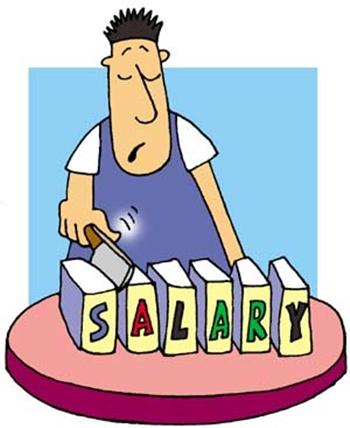 | « Back to article | Print this article |
Use the tax breaks judiciously. Here's how!
While the role of the taxman is to maximise tax collection, he also gives tax breaks that reduce the tax paid by us. On the surface this looks very contradictory to his objectives. But it makes sense when we have a holistic picture.
Take a look at the various tax saving tools available and their significance in your personal finance life.
The Current Tax Benefit Tools - Section 80C
Section 80C of the Income Tax Act gives tax benefits in the form of reduction in taxable income up to Rs 100,000 (Rs 1 lakh) per year.
Of the investments in Section 80C, ULIPs (unit-linked insurance policies) and ELSS (equity-linked savings schemes, which are tax saving mutual funds that have a 3-year lock-in period) could be considered by investors with a long-term (above 7 years and 3 years, respectively) investment horizon. EPF (employees provident fund) is unavoidable for the salaried employee, so it becomes an automatic investment.
Term insurance for the bread winner(s) of the family is a must for any family that gets the tax benefit. But very few families in India have one.
Child education is one other component that gets this benefit.
Other savings instruments like PPF (public provident fund), postal deposits are better when not invested for tax purposes as the returns are very low for their long lock-in periods.
Principal component of the housing loan repayment is a positive inclusion in Section 80C. But when this component is included in the space of Rs 100,000 (Rs 1 lakh), it becomes relatively small.
Use the tax breaks judiciously. Here's how!
House Rent Allowance (HRA)
Upto 40 per cent (50 per cent in case of the metros) of the basic pay or actual HRA received or rent paid above 10 per cent of basic pay, which ever is lesser, is exempt from income as the house rent allowance.
Sometimes we see payslips with HRA equal to 100 per cent of the basic. There is not much benefit here. Please talk to your HR manager on whether you can have some flexibility to design your pay subject to the same CTC (Cost to Company).
Conveyance Allowance
This is an allowance that is still set at the archaic Rs 800 per month levels.
Leave Travel Allowance (LTA)
There is flexibility now in the way LTA is to be processed. We do not have to submit the bills to the company to claim it. That looks like good news. However, the hitch is that the income tax department can ask for the original bills at its discretion.
This can be claimed only two times in a block of 4 years. Retain your bills. Ensure that what you claim is what you 'actually' spent.
Use the tax breaks judiciously. Here's how!
There is a benefit of reduction in taxable income up to Rs 150,000 per year for the interest component of the housing loan. Though there is considerable reduction in the taxable income, it should be remembered that this cash flow is a negative cash flow that does not add to one's wealth.
When we shell out Rs 150,000 the maximum tax benefit that we get is probably 30 per cent (at the highest tax slab). This is Rs 45,000 in the form of tax benefit.
If you had paid the tax instead, you may have lost Rs 45,000 but would have been able to invest or use Rs 105,000 the way you wanted to. By only thinking of saving the tax you actually lose out on paying as interest an additional Rs 105,000.
The other angle to this is that the interest component of the loan keeps decreasing as the years progress, thus negating the benefit of tax savings too in the latter years.
Use the tax breaks judiciously. Here's how!
Investments like long-term investments in ULIPs (please do not take the sales agent's view of investing for 3 years), ELSS, pension plans like the EPF and New Pension Scheme give us the benefit of tax savings and also wealth creation.
Please do not borrow to invest in tax saving products unless it is an interest-free loan from friends. The tax benefit may not be as high as the interest rate charged by the bank or your friendly neighborhood financier.
A house can be a wealth only when it is paid up in full. Technically it is an asset in the banks' account till we pay out the last EMI (equated monthly instalment). Please do not take up a housing loan for the apparent tax benefit that it gives as it is highly negative on the wealth creation front. The HRA also becomes taxable if your house is in the same town as your office.
Make use of the tax breaks judiciously in the right spirit of investment and savings and not merely to avoid paying tax!
Powered by
BankBazaar.com is an online marketplace where you can instantly get loan rate quotes, compare and apply online for your personal loan, home loan and credit card needs from India's leading banks and NBFCs.
Copyright 2025 www.BankBazaar.com. All rights reserved.



